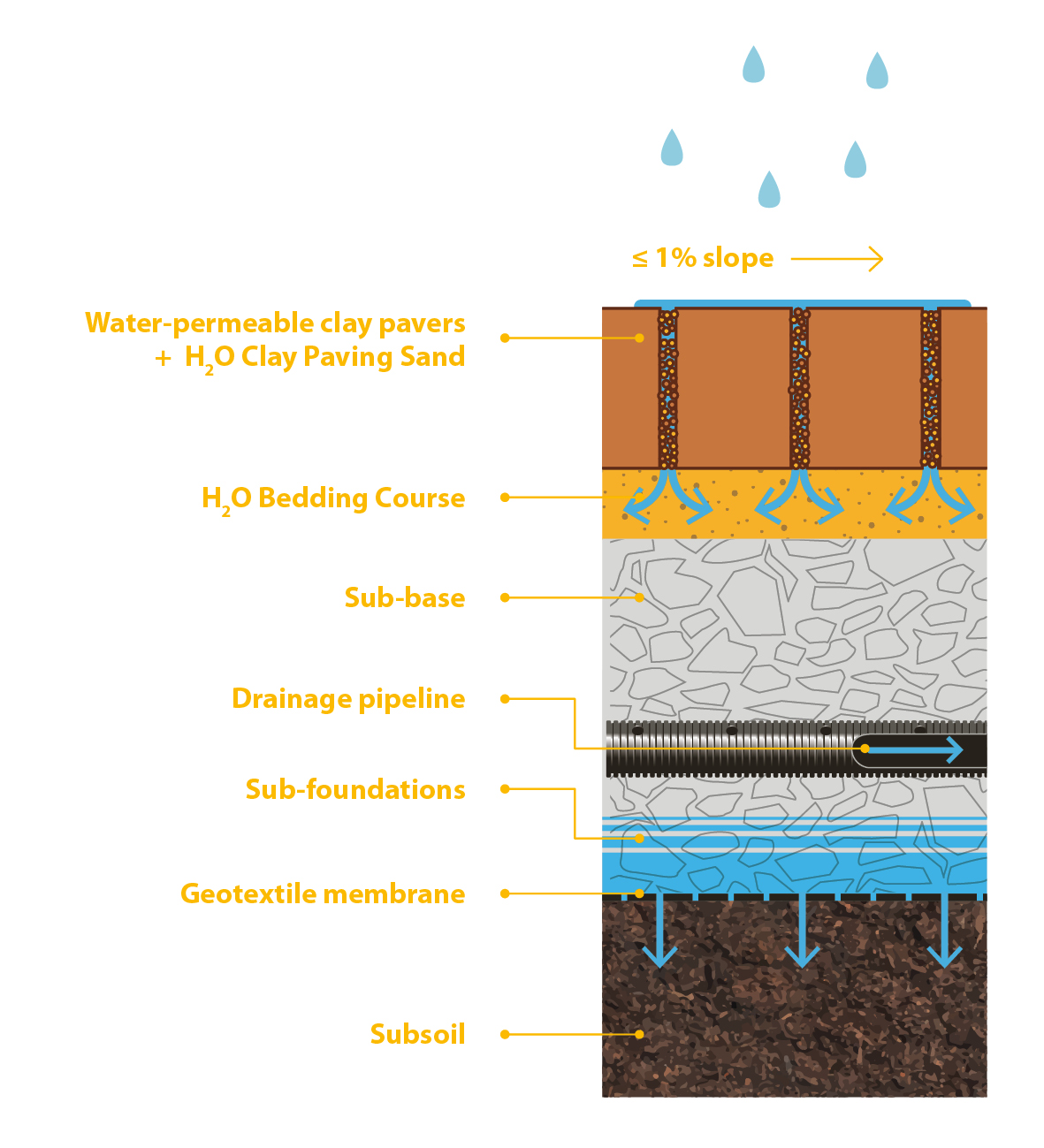
Water-permeable paving with respect for the groundwater level
by a correct buildup of a water-permeable structure:

Increasing climate change presents us with a number of challenges. For instance, in recent years we have noticed that a large proportion of paved sealed surfaces can lead to both flooding and lowering of the groundwater level as rainwater is no longer able to penetrate the subsoil in a natural way.
The concept of H2O Natural Clay Paving allows rainwater to infiltrate on the spot. The adapted laying bed and foundations allow the water to slowly drain into the subsoil. This is how we relieve the burden on the sewers and maintain the level of our groundwater. The whole paving system results in a minimum water permeability capacity of 5.4 x 10-5 meter per second.
All our pavers are suitable for the H2O Natural Clay Paving Concept
More info about
H2O Natural Clay Paving?
Why 5.4 x 10-5 m/s?
The whole paving system results in a minimum water permeability capacity of = 5.4 x 10-5 m/s.
Which is equivalent to the infiltration of a rain shower of 270 l/s/ha, with a safety factor of 2. What that means in concrete terms is that the paving must be able to safely allow the infiltration of a rain shower of 270 litres per second per hectare. The capacity is therefore calculated at twice this volume.
“100% natural, 100% natural appearance
and 100% comfort retained”
Vande Moortel clay pavers are ideal for the construction of water-permeable paving due to their specific natural character and quality characteristics. In conjunction with the correct joint filling, our moulded clay pavers provide enough space for rainwater to infiltrate the subsoil via the traditional natural joints between the clay pavers. Unlike extruded pavers or concrete pavers, with Vande Moortel clay pavers you are therefore not obliged to work with spacers.

H2O CLAY PAVING SAND
In this system, you need to use H2O Clay Paving Sand in order to achieve the desired result. It is designed to provide a strong, durable and permanently water-permeable joint filler according to current regulations and recommendations by the Belgian Road Research Centre.


The H2O Natural Clay Paving concept consists of 100% natural materials with a very long lifecycle that are almost completely reusable. For the production of our clay pavers, we make maximum use of local and renewable raw materials (river clay from the Scheldt basin) and we make the soil under our feet more sustainable, as it were. The use of the ecologically optimized SeptimA-format immediately results in a 30% CO2-, material and energy reduction compared to baked pavers in the classic format.

The pillars of our H20 Natural Clay Paving Concept
- 100% natural material
- A proven lifecycle across multiple generations of more than 100 years
- CIRCULAR ( > 90% reusable material for secondary use)
- Maximum use of local and renewable raw material
- Maximum CO2-reduction: -30% using the SeptimA-format
- 30% less material & energy
- The whole paving system results in a minimum water permeability capacity of 5.4 x 10-5 m/s which is equivalent to the infiltration of a rain shower of 270 l/s/ha, with a safety factor of 2














